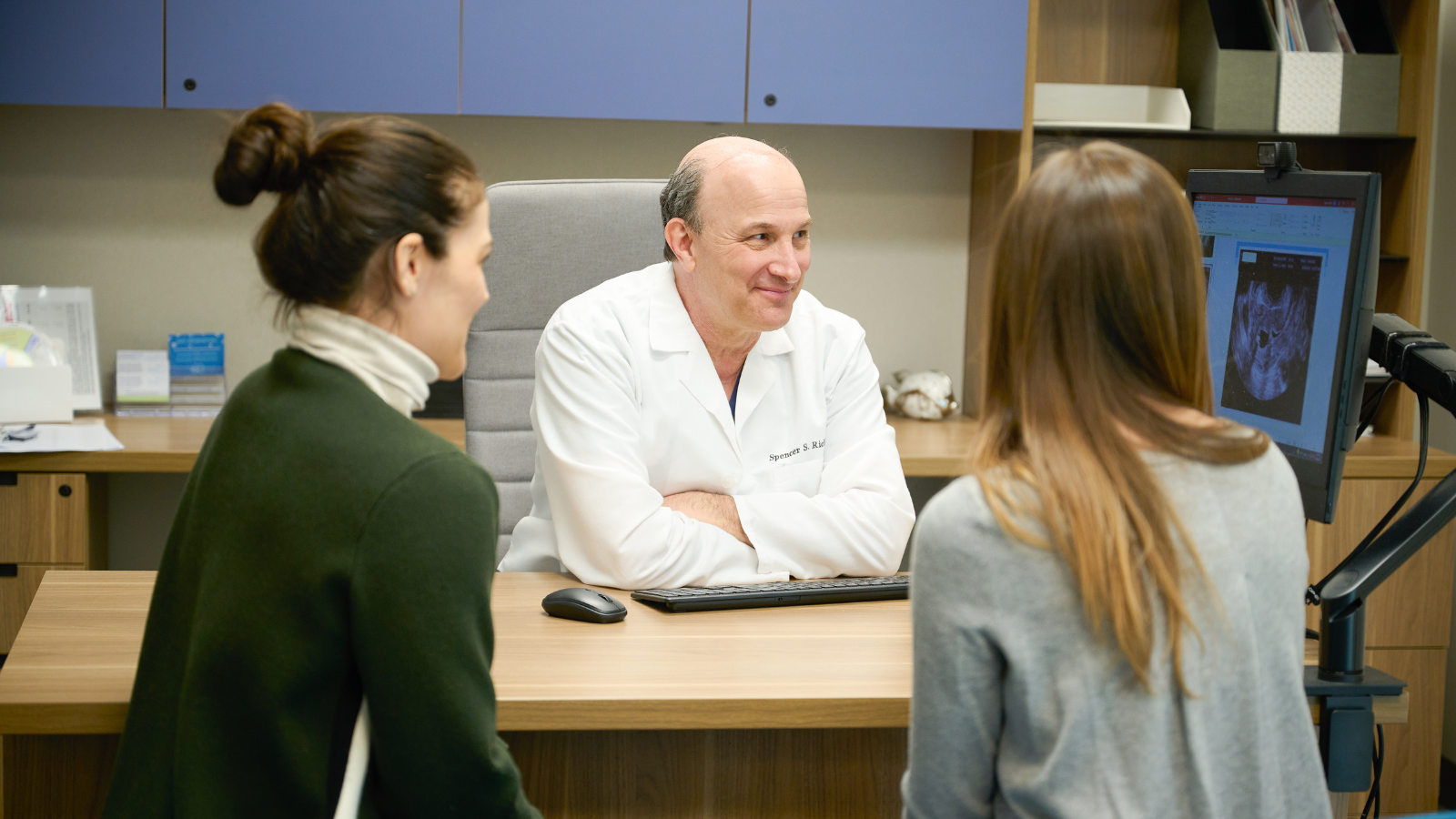The Role of Reproductive Endocrinology in Fertility Health
Reproductive endocrinology is a specialized field within medicine that focuses on how hormones influence fertility and reproductive health. These hormones—like estrogen, progesterone, testosterone, FSH, and LH—play a vital role in regulating ovulation, sperm production, and the overall reproductive process. When these hormones fall out of balance, conception can become more difficult. Reproductive endocrinologists are medical experts trained to diagnose and treat such hormonal issues, helping both men and women achieve healthy fertility outcomes. By understanding how the endocrine system works, patients gain insight into why certain symptoms—such as irregular periods, low libido, or unexplained infertility—may occur. Early consultation with a reproductive endocrinology and infertility specialist can make a significant difference, as timely testing and treatment often lead to better fertility results. Hormonal harmony is at the core of reproductive success, and maintaining that balance can open new doors to parenthood.
Common Causes of Infertility and Hormonal Imbalances
Infertility is not a one-size-fits-all condition—it can stem from a variety of hormonal and physiological factors in both men and women. In women, common causes include polycystic ovary syndrome (PCOS), endometriosis, thyroid disorders, and premature ovarian failure. These conditions interfere with normal ovulation or disrupt hormone production, making conception more challenging. For men, low sperm count, testosterone imbalance, varicocele, and issues related to sperm motility or morphology can be key contributors. Lifestyle and age also play a major role; stress, poor diet, lack of sleep, and exposure to environmental toxins can affect hormone levels and reproductive function.
Understanding the root cause of infertility helps guide effective treatment. Often, couples discover that both partners may have underlying factors that need attention. Addressing hormonal imbalance is essential, but equally important is recognizing the emotional strain infertility brings. It can affect relationships, self-esteem, and overall mental health, which is why seeking compassionate, expert care is vital for both physical and emotional well-being.
How Reproductive Endocrinologists Diagnose Infertility
When patients visit a reproductive endocrinology and infertility specialist, the process begins with a thorough assessment of medical history, lifestyle habits, and prior reproductive health experiences. For women, diagnostic evaluations may include hormone panels to check estrogen, FSH, LH, and thyroid levels, as well as imaging tests like ultrasound or hysterosalpingography (HSG) to examine the uterus and fallopian tubes. Ovarian reserve testing is also common, helping determine the quantity and quality of remaining eggs.
For men, testing typically starts with a semen analysis to assess sperm count, shape, and motility. Additional evaluations, such as hormonal testing and genetic screening, may be conducted to identify deeper issues affecting sperm production.
These diagnostic steps enable reproductive endocrinologists to design a personalized treatment plan that addresses specific challenges. The process is comprehensive, data-driven, and patient-focused. The goal is to identify not just the symptoms but the underlying causes that affect reproductive potential—paving the way for targeted solutions that enhance fertility outcomes.
Treatment Options in Reproductive Endocrinology and Infertility Care
Once a diagnosis is made, a range of treatment options becomes available, depending on each patient’s needs. Reproductive endocrinology and infertility specialists often recommend hormonal therapies to regulate ovulation, manage thyroid disorders, or optimize testosterone levels. These treatments aim to restore balance within the endocrine system and create ideal conditions for conception.
For couples who require more advanced interventions, assisted reproductive technologies (ART) offer highly effective solutions. These include:
- Intrauterine Insemination (IUI): Placing sperm directly into the uterus during ovulation.
- In Vitro Fertilization (IVF): Combining eggs and sperm outside the body and transferring embryos into the uterus.
- Intracytoplasmic Sperm Injection (ICSI): Injecting a single sperm into an egg to improve fertilization chances.
- Egg or Sperm Freezing: Preserving reproductive cells for future use.
In some cases, donor eggs, donor sperm, or gestational carriers may be recommended to help patients build families. Minimally invasive reproductive surgeries may also correct physical issues, such as blocked tubes or fibroids, that interfere with fertility. Each treatment path is tailored, ensuring that patients receive the most suitable and compassionate care possible.
Lifestyle and Integrative Approaches to Support Fertility
While medical treatments play a crucial role in reproductive health, lifestyle adjustments can significantly improve outcomes. Reproductive endocrinologists often recommend a holistic approach that integrates nutrition, fitness, and mental well-being. Balanced diets rich in antioxidants, vitamins, and healthy fats help regulate hormone production and improve egg and sperm quality. Weight management also plays a role—both underweight and overweight individuals can experience hormonal irregularities that affect fertility.
Integrative therapies have become increasingly popular among fertility patients. Practices such as acupuncture, yoga, and mindfulness not only reduce stress but also improve blood flow to reproductive organs. Additionally, medical nutrition therapy and supplementation—like folic acid, vitamin D, and omega-3 fatty acids—can enhance reproductive health. Avoiding environmental toxins, smoking, and excessive alcohol is equally important, as these substances can disrupt hormone function. When patients adopt a balanced lifestyle, they support both their physical and emotional readiness for conception.
Emotional and Psychological Support During Fertility Treatment
Fertility challenges can take a deep emotional toll, affecting confidence, relationships, and hope. Reproductive endocrinology and infertility specialists recognize this and often emphasize emotional support as part of comprehensive care. Counseling and support groups can help patients navigate the emotional ups and downs of treatment. Sharing experiences with others facing similar challenges can foster a sense of understanding and encouragement.
Mental health professionals specializing in reproductive counseling can provide tools for coping with anxiety, depression, and stress related to infertility. Techniques such as journaling, meditation, and open communication with one’s partner can strengthen emotional resilience. Clinics that integrate psychological wellness into fertility care empower patients to approach treatment with a healthier mindset and a stronger sense of control. Maintaining emotional balance can also improve treatment outcomes by reducing physiological stress responses that may interfere with hormonal function.
Advances and Innovations in Reproductive Endocrinology
The field of reproductive endocrinology and infertility continues to evolve with rapid technological and scientific advancements. Artificial intelligence (AI) and genetic screening are revolutionizing how fertility specialists assess embryos and predict treatment success. Innovations in cryopreservation have made egg and embryo freezing more efficient, giving patients greater flexibility in planning their families. Improved imaging tools and minimally invasive procedures allow for earlier detection and treatment of reproductive issues.
Additionally, advances in personalized medicine enable fertility specialists to tailor protocols based on a patient’s genetic, hormonal, and metabolic profile. These breakthroughs are making fertility care more precise, effective, and accessible than ever before. The future of reproductive endocrinology promises continued progress—helping more individuals and couples achieve their dream of parenthood with fewer barriers and better success rates.
Choosing the Right Reproductive Endocrinology and Infertility Specialist
Selecting the right specialist is one of the most important steps in the fertility journey. Patients should seek a reproductive endocrinologist who is board-certified, experienced, and dedicated to individualized care. A reputable fertility clinic should offer transparent communication, clear treatment options, and evidence-based solutions. When preparing for the first consultation, patients can make the most of their visit by asking key questions such as:
- What tests do I need, and what will they show?
- What treatment options fit my diagnosis and lifestyle?
- What are the potential risks and success rates?
- How much will treatment cost, and are there financing options?
Choosing a doctor who prioritizes empathy, patient education, and open dialogue can transform a stressful experience into a more empowering one. The right fertility specialist doesn’t just provide medical treatment—they become a trusted partner throughout the journey to parenthood.
FAQ
1. What is the difference between a gynecologist and a reproductive endocrinologist?
A gynecologist focuses on general female reproductive health, while a reproductive endocrinologist specializes in diagnosing and treating hormonal and fertility-related issues in both men and women.
2. When should a couple see a reproductive endocrinology and infertility specialist?
Couples under 35 should seek help after a year of trying to conceive, while those over 35 should consult a specialist after six months.
3. Can hormonal imbalances be corrected naturally?
In some cases, lifestyle changes, diet, and stress management can help, but many hormonal imbalances require medical evaluation and treatment.
4. What is the success rate of IVF and other fertility treatments?
Success rates vary by age, diagnosis, and clinic, but advances in technology have made IVF and ART increasingly effective.
5. How long should I try to conceive before seeking fertility care?
Generally, 6 to 12 months depending on age and health history, but earlier consultation is encouraged if known reproductive issues exist.
6. Is infertility always caused by women’s health issues?
No, about one-third of infertility cases are due to male factors, one-third female, and one-third a combination of both.
7. Are fertility treatments safe for long-term health?
Most fertility treatments are considered safe when managed by qualified specialists, and risks are carefully monitored during care.
Takeaway
Understanding reproductive endocrinology and infertility empowers patients to make informed decisions about their health and future. Fertility challenges are deeply personal, but with the right knowledge, expert guidance, and emotional support, many individuals and couples find successful paths to parenthood. By combining medical innovation, lifestyle wellness, and compassionate care, reproductive endocrinology continues to offer hope—and tangible results—for anyone seeking to grow their family.






